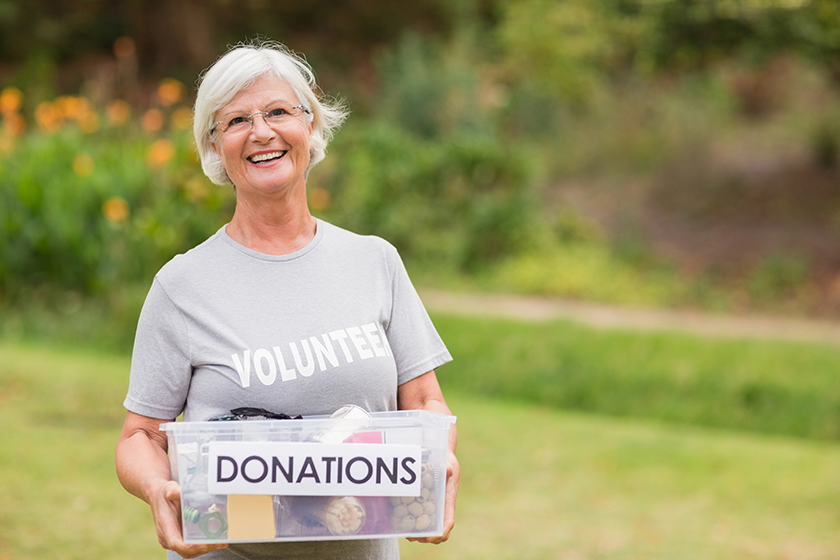Volunteering For Seniors: How To Start

As we age, finding ways to give back can bring fulfillment, boost mental well-being, and even improve physical health. Volunteering for seniors can offer a wonderful sense of purpose, connecting seniors to their community and enabling them to make a positive impact. Here’s a guide on how to start, along with tips to find suitable volunteer opportunities and prepare for a fulfilling experience.
Why Volunteer? The Benefits for Seniors
Volunteering benefits seniors by enhancing their sense of purpose, providing opportunities for social interaction, and keeping them mentally engaged. Research shows that volunteer work can improve cognitive health and reduce feelings of loneliness, two critical factors for a happier, healthier life in later years. Engaging in volunteer activities can help seniors stay physically active, mentally sharp, and connected to their communities.
How to Start Volunteering as a Senior
Starting the journey of volunteering may seem daunting, but it can be simplified by breaking it down into a few steps:
- Identify Personal Interests and Strengths
Begin by thinking about what you’re passionate about and what skills you can bring to a cause. Seniors who enjoy teaching may find joy in tutoring or mentoring young people, while those who love animals might find fulfillment in helping at an animal shelter. - Consider Health and Mobility
Choose activities that align with your health and mobility levels. For example, those with limited physical mobility might enjoy virtual or phone-based volunteering, such as providing companionship or support over the phone to individuals in need. - Start Small and Gradual
Begin with a few hours a week, especially if you are new to volunteering. Gradual involvement allows you to ease into the experience without feeling overwhelmed. You can gradually increase your involvement once you feel comfortable.
Finding Volunteer Opportunities Suitable for Seniors
Several organizations offer volunteer opportunities specifically suited to seniors, recognizing their unique experiences and skills. Here’s where to look:
- Local Community Centers and Nonprofits: Many community centers provide volunteer programs tailored to senior interests and abilities.
- Online Volunteer Matching Services: Websites like VolunteerMatch and AARP’s Create the Good list volunteer opportunities in various fields, from helping children and the elderly to environmental conservation. Seniors can browse based on location, area of interest, and time commitment.
- Faith-Based Organizations: Many religious institutions run community outreach programs that rely on volunteers. These can be excellent options for seniors, as they often come with built-in social networks and a sense of belonging.
- Hospitals and Care Facilities: Hospitals and senior care facilities welcome volunteers who can provide companionship to patients, assist staff, or contribute to community outreach. For those interested in health care or providing direct support, these settings offer meaningful work with impactful results.
Preparing for a Successful Volunteering Experience
Once you’ve chosen a volunteer opportunity, it’s essential to know any requirements, such as background checks, training sessions, or certifications, to ensure a smooth start. Set realistic expectations, as volunteering can be both rewarding and challenging, with moments that may feel demanding or emotional. Approach each day with a positive outlook to help manage these experiences.
Take care of your health throughout your volunteer work. Volunteering can require physical and emotional energy, so stay hydrated, take breaks, and seek support if needed. Practicing self-care helps you stay effective and enjoy the experience fully.
Staying Motivated and Making the Most of Volunteering
After beginning, many seniors feel motivated by the rewards of volunteer work. To sustain this motivation, connect with fellow volunteers to build friendships and a supportive community, which fosters a sense of camaraderie. Reflect on your impact to reinforce purpose; keeping a journal or sharing experiences with loved ones can help you stay inspired and recognize the positive difference you’re making.
Stay curious and open to trying new roles within the organization. Exploring different aspects of the work keeps the experience fresh and continuously rewarding.
The Joy of Giving Back
Volunteering is a journey that can enrich seniors' lives, helping them stay connected, active, and fulfilled. Starting is simpler than it seems—by assessing interests, finding local opportunities, and being prepared, seniors can enjoy a meaningful experience that positively impacts both their lives and their communities. Embrace the possibilities that volunteering brings and discover the joy of giving back!